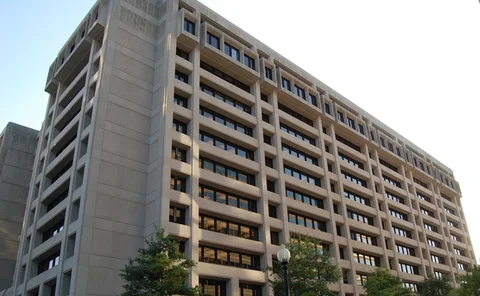Financial crisis
Book notes: The International Monetary Fund: Distinguishing Reality from Rhetoric, by Graham Bird and Dane Rowlands
The book brings valuable rigour to bear in assessing the work of the IMF, but suffers from a reliance on ageing data in many places, says Jacek Klich
Riksbank early warning indicator signals high risks
New measure of financial fragility performs better than credit gap method, economists say; current readings suggest risks are on a par with 2008
BIS paper finds Fed’s QE had little discernible impact on real economy
Results are still preliminary, authors say, but “cast some doubt” on the effectiveness of US quantitative easing
Book notes: The Man Who Knew: The Life & Times of Alan Greenspan, by Sebastian Mallaby
An extensive account of Greenspan's life and achievements, but would have benefited from a closer analysis of his relationships with comrades at the Fed
Haldane hopeful for ‘rebirth’ of economics
BoE chief economist believes crisis for the profession could lead to a break with past thinking; offers solutions to productivity problems
BoE paper experiments with measuring vulnerabilities
The study finds the US had highest levels of vulnerability in the run-up to the 2008 financial crisis, with Asia and Europe appearing “robust”; the picture has now reversed, authors say
Book notes: Shadow banking in China, by Andrew Sheng and Ng Chow Soon
The authors dispel many myths about shadow banking in China – but may underestimate future risks, writes Michael Taylor
Non-linear shocks create asymmetric policy impacts – paper
Bank of England working paper shows a shock to mortgage spreads has more of an impact on the real economy during periods of recession, with implications for policy
Task force launches climate disclosure recommendations
Mark Carney says better information will allow investors to “back their convictions with their capital”; Mary Schapiro says businesses will take the lead, even if politicians will not
BoE studies effects of capital requirements on balance sheets
After the financial crisis, banks placed more emphasis on asset deleveraging and adjusted their capital management practices
BIS economists model benefits of leaning against the wind
Endogenous model of financial crises points to benefits of using monetary policy to lean against financial imbalances, in contrast to many other studies
RBS falls short in latest Bank of England stress tests
Three banks show signs of “capital inadequacies” in the latest round of tests, with RBS forced to review its capital plan; Carney says global and domestic risk remains “elevated”, prompting the FPC to leave its buffer unchanged
Cœuré spells out ECB’s stance on Greek reforms
The Greek government must reform the legal process and status of banks, senior ECB figure says
Banks have still not fixed ‘poisonous mix’ of problems – BIS’s Borio
Claudio Borio warns that in some respects, banks have still not solved the problems revealed by the 2008 crisis, which leaves them vulnerable
Swiss paper shows macro impacts on two safe-haven currencies
Authors surprised to find no significant impact on franc or yen stemming from euro crisis; foreign macroeconomic data has asymmetric impact
Eurozone banks vulnerable to global risk repricing, ECB warns
US elections have “aggravated” risk of global repricing, which could trigger contagion in eurozone financial system, Vítor Constâncio says
Australasia has avoided stagnation trend – RBNZ’s Bascand
Different household behaviour in Australia and New Zealand appears to have contributed to higher growth and investment
Demands on central banks have created critical juncture – El-Erian
Economist says burden placed on central banks has created economic and political instability across the globe, and something must soon give
Bailouts more likely in unequal democracies – research
Accountable governments face pressure to preserve banks
Bank of Canada paper explains decision to dilute ELA solvency requirement
Economists say emergency liquidity can play an important role in a resolution process, which led the Bank of Canada to amend its rules to allow for temporary insolvency
Central banks should sacrifice some independence – Harvard economists
A group including the UK’s Ed Balls says central banks are losing legitimacy; handing over some “political independence” could reverse the trend without damaging policy outcomes
Market forces drive deleveraging as well as regulation – Caruana
BIS chief says markets are forcing discipline on banks, although he concedes regulation is playing a role as well; discussion participants point to tensions in regulatory framework
IMF paper seeks to quantify debt bias
Tax systems create “pervasive” debt bias, authors find, arguing for policy action before the problem worsens
BoE paper takes DSGE approach to deflation probabilities
Comparing simulations using a DSGE model estimated on different market-based measures of deflation probability helps to pick out causality, researchers say























